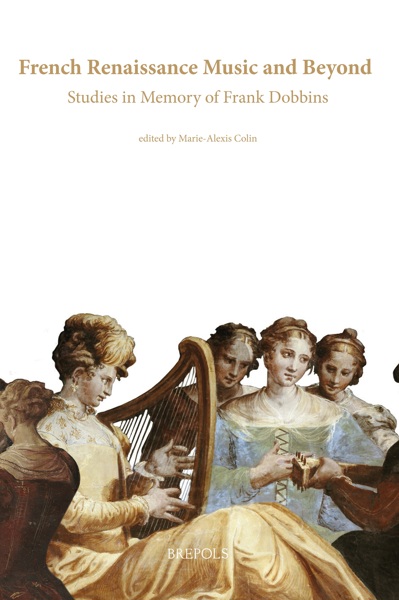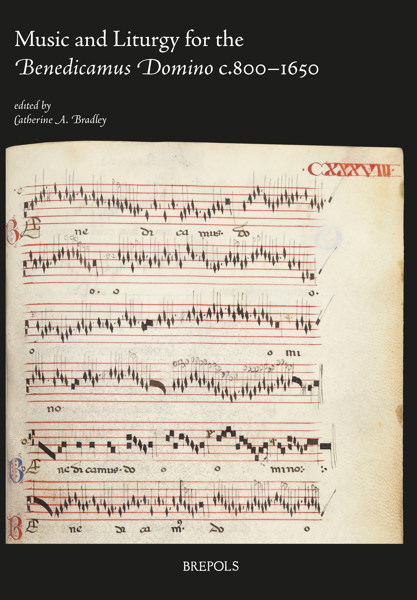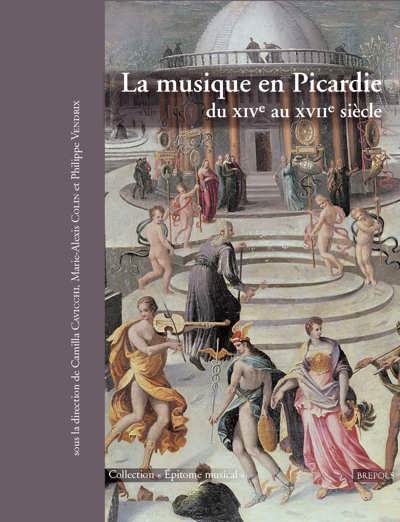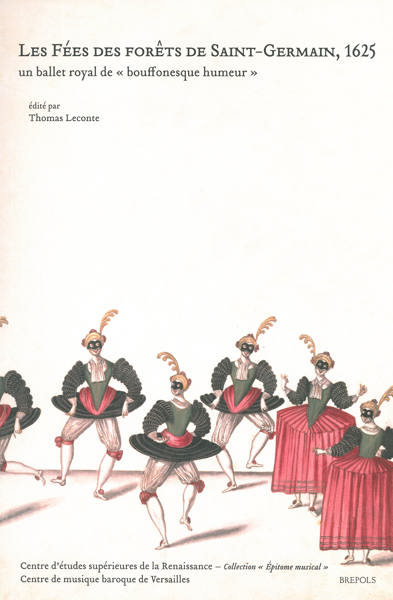
Music and Liturgy for the Benedicamus Domino c.800–1650
Catherine A. Bradley (ed)
- Pages: 398 p.
- Size:178 x 254 mm
- Illustrations:5 b/w, 18 col., 23 tables b/w., 65 music examples
- Language(s):English
- Publication Year:2024
- € 65,00 EXCL. VAT RETAIL PRICE
- ISBN: 978-2-503-61486-1
- Paperback
- Temporarily Out of Stock
- ISBN: 978-2-503-61487-8
- E-book
- Available
This volume offers the first detailed study of the ubiquitous but still little-understood versicle Benedicamus Domino (‘Let us bless the Lord’) in its musical and liturgical contexts, tracing the history of creative responses to a ritual moment across medieval and early modern Europe.
Catherine A. Bradley is Associate Professor of Music at the University of Cambridge and a Fellow of St John's College. Formerly Professor at the University of Oslo, she received the 2023 Dent Medal from the Royal Musical Association and the 2019 Early Music Award of the American Musicological Society, for her monograph Polyphony in Medieval Paris: The Art of Composing with Plainchant. Her articles have appeared in Journal of the American Musicological Society, Journal of Musicology, Music Analysis, and Speculum.
For more than a millenium, singers in churches, monasteries, and private chapels across Europe have closed their worship with the joyful musical exclamation Benedicamus Domino (‘Let us Bless the Lord’). This moment has sounded in song many times a day: at the end of the Mass, the Office hours, outside the church walls in celebratory processions, as well as in informal sacred, devotional, and festive contexts. Benedicamus Domino was uniquely associated with an unprecedented amount of creative freedom in the sacred rituals of the Christian West: plainchant melodies could be adopted at will from other parts of the liturgy, and this moment inspired a proliferation of poetic and polyphonic elaborations from the eleventh century on.
This collection of essays brings together interdisciplinary contributions from eighteen scholars, illuminating the wide range of ritual, musical, poetic, manuscript, and generic contexts for the Benedicamus Domino versicle in the period c.800–1650. Individual chapters engage with the evidence of liturgical commentaries and Patristic texts, Ordines, and hagiographies. They present and analyse musical and textual embellishments of the Benedicamus Domino, as well as their written traces and material contexts, with several sources discovered or discussed in detail here for the first time. Encompassing a wide geographical and generic scope, this volume reveals unsuspected continuities and contrasts in the history of the Benedicamus Domino versicle in medieval and early modern Europe.
Introduction
Catherine A. Bradley
I. Song
Organa, Neumae, and Dissent in Benedicamus Songs at the Abbey of Farfa in the Early Twelfth Century
Sam Barrett
The Benedicamus Domino and the Parisian Conductus: Distribution, History, and Structure
Mark Everist
Closing Formulae of Central European Cantiones: Witnesses to Tradition and Functional Fluidity in Fifteenth-Century Bohemia
Jan Ciglbauer
II. Hagiography, Theology, Liturgy
St Nicholas and the Singing of Liturgical Versicles
Mary Channen Caldwell
The Augustinian Concept of Iubilus and Medieval Liturgical Theology
Sigbjørn Olsen Sønnesyn
When Did the Benedicamus Enter the English Liturgy?
Samuel Cardwell
The Performance of the Benedicamus Domino according to the Libri ordinarii from the Ecclesiastical Province of Salzburg
Gionata Brusa
III. Early Plainchant Practices
Early Benedicamus Domino Minitexts in the Margins: New Discoveries
Giulio Minniti
Benedicamus Plainchant Melodies and their Relationships with Kyrie Source Melodies
Marit Johanne Høye
A Norman Benedicamus Domino Tradition in the Twelfth Century: New Insights from St Albans Abbey
Thomas Phillips
IV. Female Communities
Benedicamus Domino and the Order of Saint Clare in Fourteenth-Century Brussels
Martha Culshaw
Echoes from a Viennese Nunnery St. Maria Magdalena: Situating Benedicamus Domino Chants between Shared Traditions and Local Practice in the Later Middle Ages
David Merlin
The Unique Collection of Monophonic Benedicamus Domino Melodies and Tropes from Medieval Riga
Laine Tabora
V. Polyphony
Polyphony for Benedicamus Domino and Deo gratias in Late Medieval English Sources
James R. Tomlinson
A Newly-Discovered Polyphonic Benedicamus Domino in Milan
Antonio Calvia and Anne Stone
Benedicamus Domino Polyphony in the Trent Codices
Alessandra Ignesti
The Renaissance Polyphonic Benedicamus Domino in the Iberian World
Michael B. O’Connor
Bibliography
Index of Compositions
Index of Manuscript Sources
General Index




